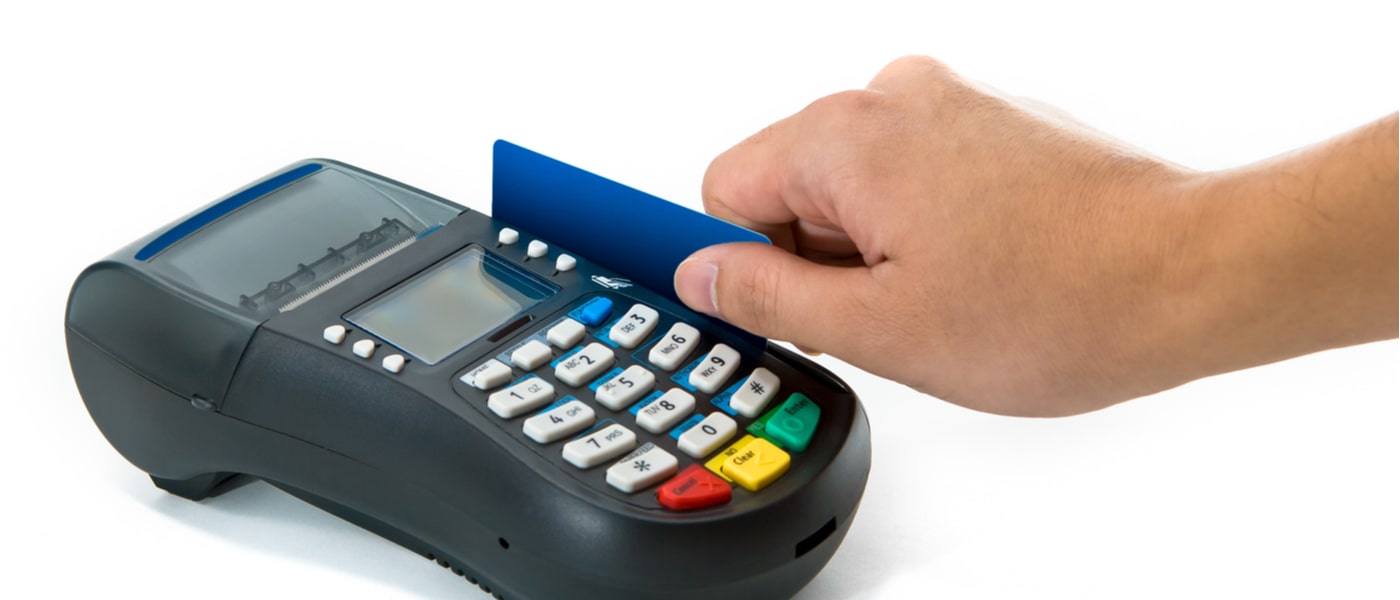Everything you need to know about payment processors
Whether you’re working entirely in the digital realm or in a brick-and-mortar store in the UK you need a payment processor.
Unfortunately, in the UK it’s not simply a matter of choosing a payment processor and forgetting about it.
We outlined everything you need to know about payment processors in one place.
After reading this you’ll be fully equipped so your customers can buy your products easily and, most importantly, you will get paid.
What are Payment Processors?
A payment processor handles transactions so your customers can buy your products.
In effect, a payment processor acts as an intermediary between the merchant accounts and the various financial institutions involved. An effective payment processor can authorise transactions as well as make sure that the merchants get paid on time. They are in effect, the facilitators of online payment transfers.
Some processors even provide their customers with debit card and credit card acceptance, security solutions, PCI compliance assistance (more on this below), and value-added services.
There are many emerging companies that specialise in processors both in the UK and abroad.
How does this work?
By communicating and relaying information from your customer’s debit or credit card to both the business bank account and the customer’s.
If enough funds are available in your customer’s account the transaction will be carried out.
A payment processor provides security to protect both consumer and business. Anti-fraud measures are set up to make sure all transactions remain confidential and secure.
Payment processing sounds straightforward enough but there are up to six players involved in these transactions.
- Customer
- Business/merchant
- Payment processor
- Payment gateway (if not combined with payment processing – we will discuss this further below)
- Customer’s bank/credit card company
- Business’s bank
Each of these plays a vital role in the cycle of business.

What is a Merchant Account?
For any business (online or otherwise), having a merchant account is essential. This is especially the case for those businesses which take credit card online payments.
If a business does not have a merchant account they cripple themselves in a number of ways. For one thing, they cannot accept money from a customer’s debit or credit card because there is nowhere to store the money.
Merchant accounts operate effectively as a bank account that accepts debit and credit card payments.
Payment Processor vs Payment Gateway
A payment processor and payment gateway are two parts of the same system. In fact, modern payment gateways integrate payment processing services to create a cohesive buying experience.
Which do I need?
It may be best to choose a payment gateway and merchant account from a single provider.
While traditionally, payment gateways have been used to accept payments for goods and services many have expanded. This expansion beyond their usual remit creates a more holistic approach for consumers.
Due to this there is no need to jump around to different websites in order to complete a transaction (as example, think of how straightforward the shopping experience is on merchants such as Amazon).
Some providers provide a third-party payment gateway but this can cause issues if there is any dispute over transactions or services.
If this is cause for concern, it may be best to choose a single provider. Using a payment gateway in this manner can cut down on the risk for merchants. It can also speed up transaction processes and ease reconciliation.
As long as you have an internet or data connection, it is possible to use a virtual terminal for your business.
What kind of payment methods do payment processors accept?
The kind of payment processor you choose will determine what kind of payments are accepted.
Take it as a general rule that Visa and Mastercard are widely accepted. On the other hand in the UK, cards such as American Express might not be.
Various cards have different fees and risks and processors will assess those factors. However, it is important that you research all available payment processing options before signing yourself into a deal.
Debit cards are also widely accepted but it can depend on how much businesses have to pay the payment processing.

What is a third party payment processor?
A third-party processor allows you to accept online payments without your own dedicated merchant account.
Instead, you can use the merchant account of a third party processor.
This sounds like an easy fix but it does come with its own set of problems.
Advantages
There are quite a few advantages to using a third party payment processing service:
Easy to operate
Rather than buying a payment gateway and merchant account separately and using them together after the fact. With a third party processor, you have one easy to use system. This saves time and increases convenience.
Great risk appetite
Third party processors are able to vary their risk appetite and so can accept merchants from high risk industries easily. This increases the chances of acceptance while reducing the amount of documentation required.
Flexible
For the most part, third-party processors don’t have long term contracts so terminating service can be done at your own discretion.
Disadvantages
Despite the appeal of the above positives, there are also some negatives when it comes to third-party payment processors.
High transaction fees
Unfortunately, a third party processor often comes with high transaction fees. These are often much higher than a traditional payment gateway and merchant account set up. It’s especially apparent at low transaction volumes where merchants receive the highest fees.
Lack of professionalism
It’s probably a little unfair but using a third-party processor is generally seen as a less professional alternative to a normal merchant account.
Control
It’s an unfortunate by-product of using someone else’s service but you’re largely operating at the pleasure of the service provider. Added to this, these services are increasingly concerned with fraud and tend to settle on the customer’s side in disputes. This can leave a merchant at a severe disadvantage when they might have provided a legitimate service.
Terms to understand with Payment Processing
As you delve deeper into the world of processors you’re likely to be confronted by ones that you don’t understand.
As a business owner, though, you need to understand these terms. That’s the best way to avoid trouble.
Here we run through some common terms associated with processors.
Acquirer
An acquirer is also known as an ‘acquiring bank’ or ‘merchant bank’. This is the financial institution which maintains a merchant’s account so they can accept credit cards.
A good acquirer deals with card transactions for merchants on their account. It is sometimes the case that an acquirer and payment processor are the same entity.
Issuer
An issuer (issuing bank) is the cardholder’s bank.
They are responsible for paying the acquirer for card transactions that are approved and then collecting payments from the cardholders.

PCI compliance
Payment Card Industry (PCI) compliance refers to compliance with the Payment Card Industry Data Security Standard.
This is a security standard which applies to all parties involved in processing, storing, and/or transmitting card payment information. Any merchant account that accepts debit or credit card payments must comply with PCI mandates.
If a company fails to achieve or maintain PCI compliance they can be left vulnerable to data breaches as well as other negative knock-on effects such as fines, fees, and lost business.
To qualify and be fully PCI compliant is a complex process. Certain processors available in the UK will offer tools and assistance to merchants. These tools can include security check-lists, breach coverage, as well as more hands-on coverage.
PCI mandates are updated often so it is a good idea to work with an experienced processor. They can often offer a complete PCI compliance assistance program.
EMV chip cards
Unlike PCI compliance, EMV cards are not mandated however they are incredibly useful for merchants.
EMV chip cards have taken a greater place in the spotlight since 2015 when the fraud chargeback liability shift took place. This shift meant that merchants had to take on new responsibilities for card-present fraud. If a business processes a chip card without an EMV-enabled terminal it could result in fraud and the merchant would be held responsible.
While an EMV chip card does not protect against data breaches it is a necessity for reducing fraud and chargeback rates for card present transactions.
Always ask your payment processor about both EMV and PCI compliance solutions.
In Summary
Choosing a payment processor can be a long and research-heavy process. However, the results are certainly worth it.
While it might save money initially to not use a payment processor, you may be losing money in the long run from deterred customers. It is far too easy in today’s marketplace to gain a poor reputation for customer service.
Companies that work exclusively online, or at least for the most part, need to make sure that their customers have a secure and efficient way to buy their products. By doing this they go a long way to building a loyal customer base and increasing their profits massively.
